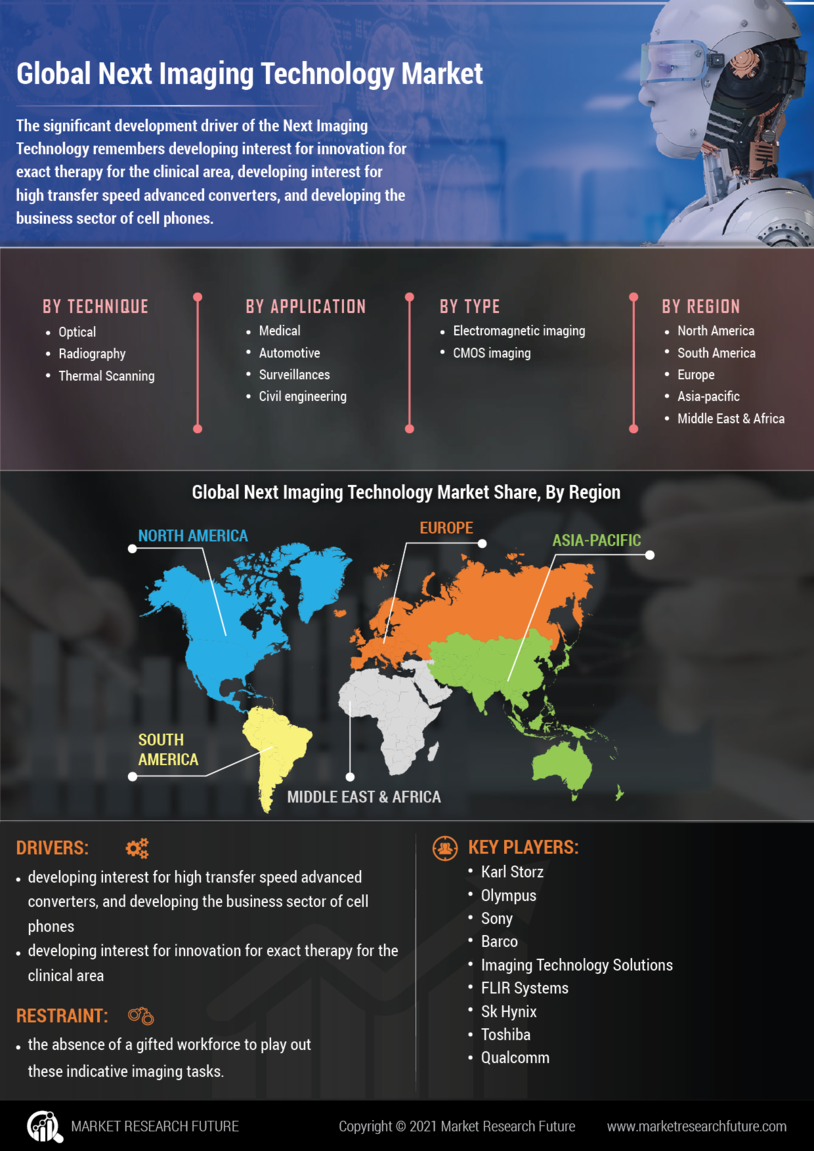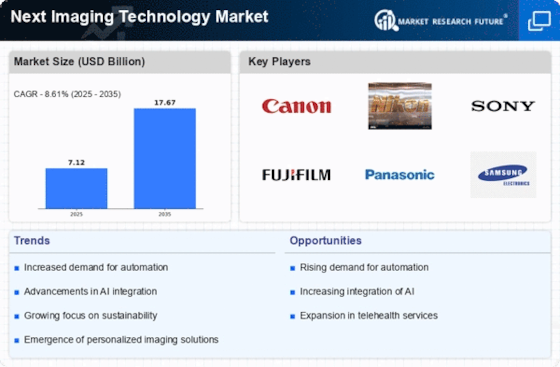Leading market players invested heavily in research and Development (R&D) to scale up their manufacturing units and develop technologically advanced solutions, which will help the Next Imaging Technology market grow worldwide. Market participants are also undertaking various organic or inorganic strategic approaches to strengthen and expand their global footprint, with significant market developments including new product portfolios, contractual deals, mergers and acquisitions, capital expenditure, higher investments, and strategic alliances with other organizations. Businesses are also coming up with marketing strategies such as digital marketing, social media influencing, and content marketing to increase their scope of profit earnings.
The Next Imaging Technology industry must offer cost-effective and sustainable options to survive in a highly fragmented and dynamic market climate.
Manufacturing locally to minimize operational expenses and offer aftermarket services to customers is one of the critical business strategies organizations use in the global Next Imaging Technology industry to benefit customers and capture untapped market share and revenue. The Next Imaging Technology industry has recently offered significant advantages to the Information technology industry. Moreover, more industry participants are utilizing and adopting cutting-edge Technology has grown substantially.
Major players in the Next Imaging Technology market, including Karl Storz, Olympus, Sony, Barco, Imaging Technology Solutions, FLIR Systems, Sk Hynix, Toshiba and Qualcomm, and others, are attempting to expand market share and demand by investing in R&D operations to produce sustainable and affordable solutions.
Philips India Ltd. is a subsidiary of Royal Philips, a major health technology business focusing on enhancing individual health and allowing better results throughout the health continuum, from lifestyle choices and prevention to diagnosis, treatment, and care at home. Philips will offer Affiniti CVx in August 2020, expanding its cardiac ultrasound line. The Technology is intended to assist cardiology units in providing better treatment to more patients while enhancing productivity and efficiency.
Furthermore, Philips confirmed the introduction of an AI-enabled magnetic resonance (MR) imaging range in November 2021, intending to enhance the effectiveness and long-term viability of radiological activities by speeding up MR tests. Such technical improvement is claimed to promote market growth significantly.
GE Healthcare Systems develops Technology, infrastructure for digital data analytics, and systems that assist with decisions for use in patient evaluation, therapy, and surveillance. In March 2020, GE Healthcare extended its manufacturing capacity by building additional production facilities to meet the rising demand for sophisticated imaging instruments, particularly during the Covid-19 epidemic.
















Leave a Comment